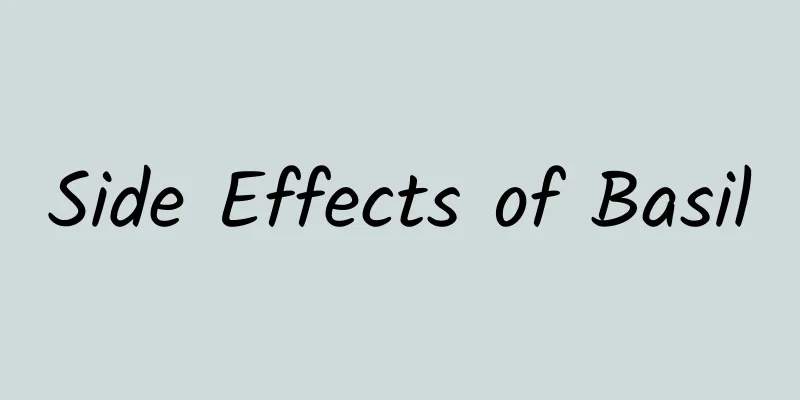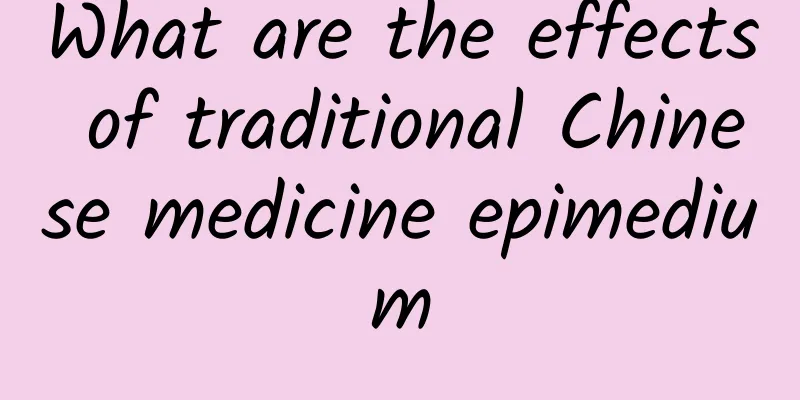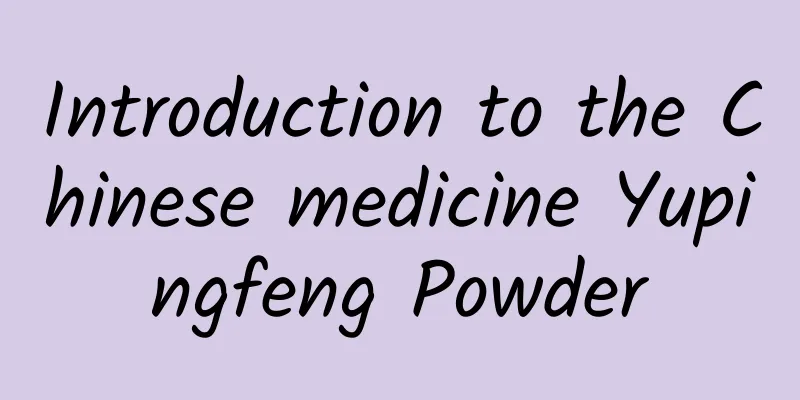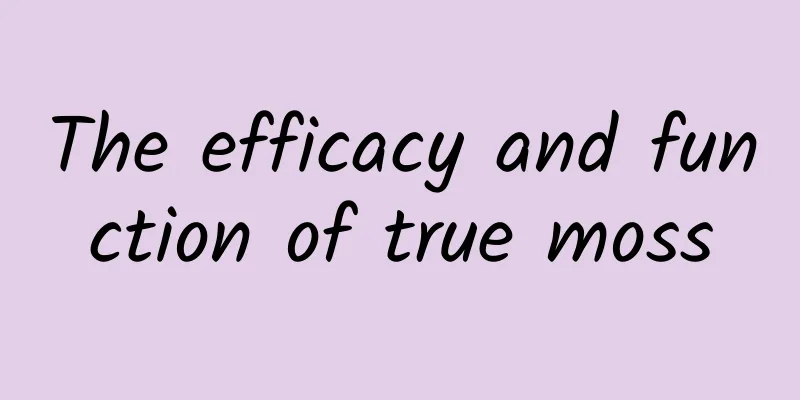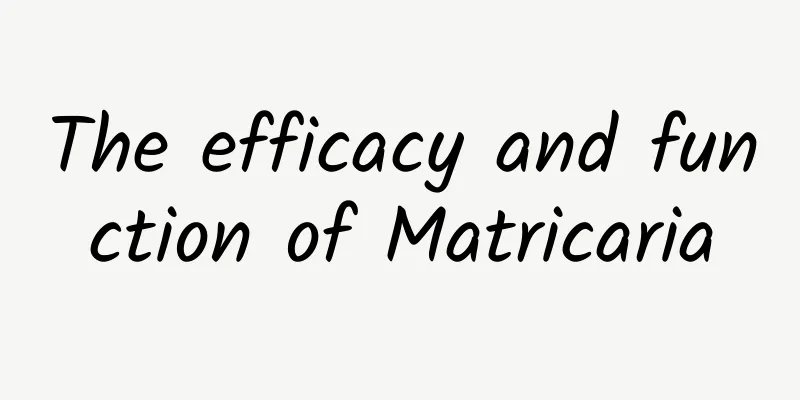What are the main Chinese medicines for nourishing Yin deficiency?
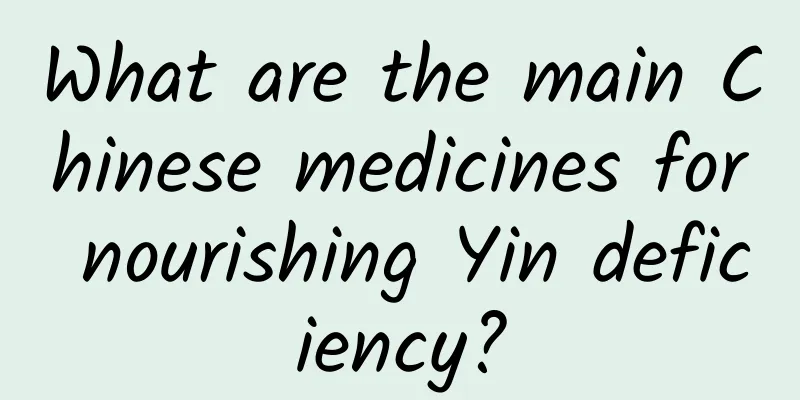
|
Many people go to the hospital's specialist clinic for medical treatment, but some people prefer to see a Chinese medicine doctor. The scope of Chinese medicine is very wide, and the symptoms and views of the disease are different, but it can also be treated with Western medicine. Yin deficiency is a phenomenon in the patient's body, which is a manifestation of physical weakness. Patients can use Chinese medicine for nourishing Yin deficiency for treatment or conditioning, and the body can return to normal. So what are the main Chinese medicines for nourishing Yin deficiency? Yin deficiency is a term in Traditional Chinese Medicine. It refers to a series of pathological changes and symptoms caused by insufficient Yin fluid, which cannot nourish and control Yang. Clinically, symptoms such as low fever, hot palms and soles, afternoon hot flashes, night sweats, dry mouth and throat, restlessness and insomnia, dizziness and tinnitus, red tongue with little coating, and thin and rapid pulse can be seen. The treatment is mainly based on nourishing yin. If the patient has yin deficiency and excess fire, it is advisable to nourish yin and clear away heat. Yin deficiency can be seen in lesions of multiple organ systems and tissues. The most common ones include lung Yin deficiency, heart Yin deficiency, stomach Yin deficiency, spleen Yin deficiency, liver Yin deficiency, kidney Yin deficiency, etc. The diagnosis is based on the presence of symptoms in various organs. Severe Yin deficiency can lead to Yin loss syndrome, with the following symptoms: hot and sticky sweat, shortness of breath, fear of heat, warm hands and feet, restlessness, thirst for cold drinks, or flushed face, red and dry tongue, and weak and thready pulse. This is a pathological condition characterized by a massive consumption of body fluids and the dryness of Yin and body fluids. It is a critical symptom and should be promptly treated with Yin nourishing and body fluid replenishing measures. Chinese medicine for nourishing Yin deficiency: Symptoms of Yin deficiency include fear of heat, irritability, flushed cheeks, dry mouth and sore throat, dry stool, short red or yellow urine, fever in the five parts of the body, night sweats, back pain, nocturnal emission and spermatorrhea, red tongue, thin or bare tongue coating, and a thin and rapid pulse. You can choose to use raw rehmannia, ophiopogon japonicus, polygonatum sibiricum, tremella fuciformis, cordyceps sinensis, dendrobium, etc. However, it is divided into many categories according to the type of disease, and the drugs used are different. 1. Lung Yin Deficiency The key points of syndrome differentiation are the common symptoms of lung disease and the syndrome of yin deficiency and internal heat. Symptoms: Cough without sputum, or small amount of sputum with sticky texture, dry throat and mouth, and weight loss. Hot flashes in the afternoon, fever in the five hearts, night sweats, red cheeks, even blood in sputum, hoarseness, red tongue with little fluid, and a weak pulse. Treatment principle: Nourish yin and moisten the lungs. Main recipe: Lily Strengthening Gold Soup. Prescriptions and medicines: raw rehmannia, cooked rehmannia, ophiopogon japonicus, fritillaria, lily, angelica, peony, licorice, scrophularia, platycodon, etc. 2. Heart Yin Deficiency Syndrome The key points of diagnosis of this syndrome are the common symptoms of heart disease and Yin deficiency syndrome. Symptoms: Mostly seen in patients with liver and kidney deficiency, true yin depletion, or in the late stage of fever where yin damage has not recovered. Yin-blood deficiency, blood cannot nourish the heart and calm the mind, resulting in palpitations, insomnia, frequent dreams, forgetfulness, night sweats, restlessness, hot hands and feet, dry mouth and throat, red tip of the tongue, little coating, and a thin and rapid pulse. Or there may be symptoms such as red cheeks, dizziness, etc. Treatment principle: Nourish the heart yin, clear the heart and calm the mind. Main formula: modified Tianwang Buxin Dan. Prescriptions: Angelica sinensis, donkey-hide gelatin, Polygonatum odoratum, Yuanshen, Ophiopogon japonicus, Ziziphus jujuba seed, Platycladus orientalis seed, Dragon bone, oyster, amber, mother of pearl, Semen cassiae, Coptis chinensis, bamboo leaves, Forsythia suspensa, Echinochloa ciliata, Juncus wicker, etc. 3. Stomach Yin Deficiency The key points of diagnosis for this syndrome are the common symptoms of gastric disease and Yin deficiency syndrome. Symptoms: Insufficient stomach yin will lead to hyperactivity of stomach yang, internal generation of virtual heat, stagnation of heat in the stomach, disharmony of stomach qi, and deficiency of stomach yin, which will cause dull pain in the epigastrium and loss of appetite despite hunger. Dry mouth and throat; dry stool. Abdominal distension and discomfort, dry retching and hiccups. Red tongue with little fluid, weak pulse, etc. are signs of yin deficiency and internal heat. Treatment principle: Nourish stomach yin and clear stomach heat. Main recipe: Jiajian Yu Nu Jian. Prescription: Polygonatum odoratum, raw rehmannia, Adenophora radix, Ophiopogon japonicus, Platycodon grandiflorum, Polygonum aviculare, Licorice root, red dates, and fermented black beans. Chinese medicine for nourishing Yin deficiency is selected according to the severity of the patient's condition, and is also divided according to the type of Yin deficiency. Yin deficiency can manifest itself in many organs and parts, and the selected prescriptions and types of Chinese medicine are different. Therefore, patients should first observe the symptoms of the body and then check after meeting the requirements of the disease. Only when the condition is confirmed can effective treatment be made. Chinese medicine treatment requires a long course of treatment. Patients should choose prescriptions according to the doctor's instructions and change prescriptions according to their condition. |
<<: What are the traditional Chinese medicines for nourishing Yin and nourishing the nest?
>>: What are the Chinese medicines for nourishing yang deficiency?
Recommend
The efficacy and function of nail rake seven
The essence of traditional Chinese medicine is to...
The barren saline-alkali land has actually changed the "appearance" of the coastline?
Saline-alkali land refers to land with excessivel...
Human foodies "catch strong men", female coconut crabs can't find a husband
"Don't get too fat, or people will eat y...
Why are the wheelchairs used by Paralympic athletes in a figure eight shape?
Recently, the Paris Paralympic Games are in full ...
How to eat red ganoderma
Red Ganoderma is also a kind of Ganoderma, but th...
In the world created by “screens”, the word “natural” is becoming less and less common?
Leviathan Press: The author of this article, Alan...
Medicinal value of oak
What is Lithops? Many people don’t know about it....
Six flight missions have been confirmed for this year! And here are some breaking news →
With the safe return of the three astronauts Zhai...
"Underwater locusts" invade on a large scale! Netizens: Can we solve the problem by eating them?
Starfish are known as "sea locusts". Th...
The efficacy and function of Tibetan Nepeta
Do you know Tibetan Nepeta? It is a common Chines...
The efficacy and function of Taxus cuspidata
For Chinese medicinal materials such as Taxus cus...
Chinese medicine prescription for regulating menstruation
Irregular menstruation has become a serious probl...
What are the medicinal values of Cantharides?
I believe many people have never heard of the bli...
The efficacy and function of Luanhua
Traditional Chinese medicine often has unexpected...
